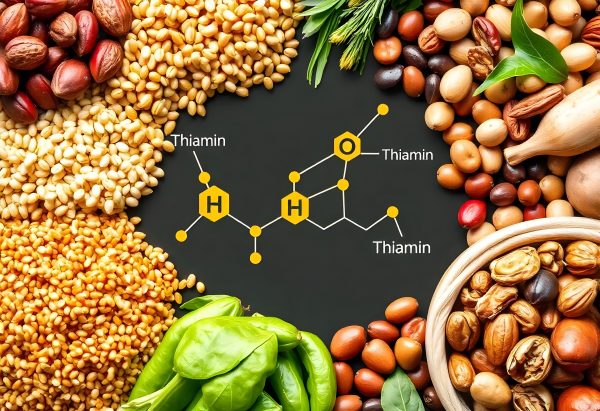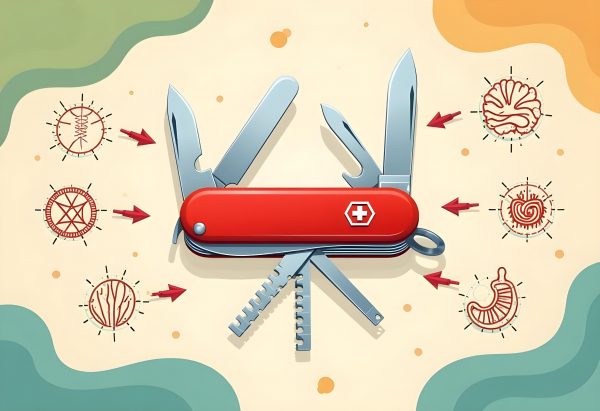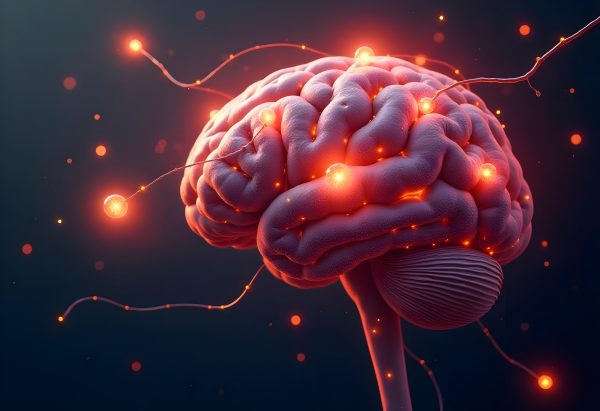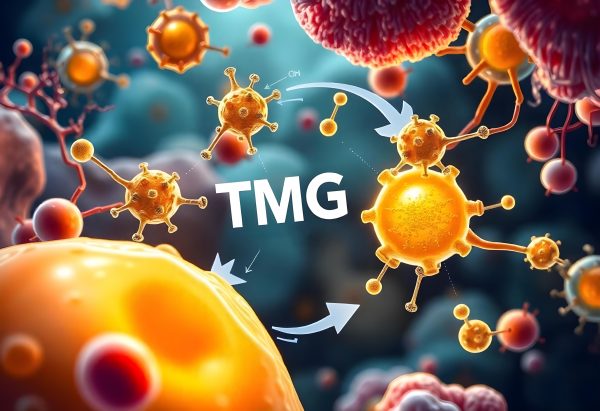
Alright, let's dive into the fascinating world of B vitamins and their cousins! Buckle up, because we're about to take a wild ride through the biochemical landscape of your body.
Ladies and gentlemen, boys and girls, gather 'round! Today, we're gonna talk about some of the unsung heroes of your metabolism – the B vitamin complex and a couple of their close pals. These tiny titans are the workhorses of your cellular machinery, keeping your body humming like a well-oiled machine. So let's break it down, shall we?

First up, we've got Thiamin, also known as Vitamin B-1. This little dynamo is like the spark plug in your metabolic engine. It's essential for converting carbohydrates into energy, keeping your nervous system in tip-top shape, and even helping your heart beat steadily. Without thiamin, you'd feel about as energetic as a sloth on a lazy Sunday afternoon. The form we're looking at here, Thiamin HCl, is a highly absorbable version that your body can easily put to work.

Next in line is Riboflavin, or Vitamin B-2. This glowing yellow vitamin (seriously, it fluoresces under UV light!) is a crucial player in energy production. It's like the foreman on the cellular construction site, overseeing the breakdown of fats, carbs, and proteins. The combo of Riboflavin and Riboflavin-5-Phosphate is like having both the regular workers and the supervisors on the job – ensuring everything runs smoothly from start to finish.

Now, let's talk about Niacin and vitamin B-3. This bad boy is a jack-of-all-trades in your body. It's involved in over 400 enzymatic reactions! That's like being the Swiss Army knife of vitamins. Niacin helps keep your skin glowing, your nervous system firing on all cylinders, and your digestion running smoothly. The form here, Niacinamide, is a non-flushing version, so you get all the benefits without feeling like you've just run a marathon in a sauna.

Moving on to Vitamin B-6, we've got a real multitasker on our hands. This vitamin, in its active forms of Pyridoxine HCl and Pyridoxal-5-Phosphate, is crucial for protein metabolism, red blood cell formation, and even mood regulation. It's like the Swiss conductor of your bodily orchestra, making sure all the instruments play in harmony.

Now, hold onto your hats, folks, because we're about to talk about Folate. This isn't your grandma's folic acid – oh no! We're talking about Quatrefolic®, a fourth-generation folate that's like the Tesla of the vitamin world. This bad boy is the active form of folate, ready to go to work the moment it hits your system. It's crucial for DNA synthesis, cell division, and preventing neural tube defects in developing fetuses.

And what would a B vitamin complex be without the star of the show, Vitamin B-12? Here we have Methylcobalamin, the active form of B-12 that your body doesn't need to convert. This ruby-red vitamin is essential for nerve function, DNA synthesis, and the formation of red blood cells. Without it, you'd be about as energetic as a deflated balloon. The MecobalActive form ensures you're getting the most bioavailable version possible.

Biotin, oh Biotin, where do I begin? This vitamin, also known as B-7, is famous for its role in maintaining healthy hair, skin, and nails. But don't be fooled by its beauty-queen reputation – this vitamin is a hardcore metabolic player. It's crucial for fat and carbohydrate metabolism, and it helps keep your blood sugar levels stable. The d-Biotin form is the natural, active form that your body recognizes and utilizes best.

Pantothenic Acid, or Vitamin B-5, is the unsung hero of the B vitamin world. It's involved in the production of coenzyme A, which is like the Swiss Army knife of cellular metabolism. This vitamin helps you break down fats, carbs, and proteins for energy, and it's crucial for the production of red blood cells and steroid hormones. The d-Calcium Pantothenate form is the most stable and bioavailable form of this vital nutrient.

Now, let's shift gears a bit and talk about Choline. While not technically a B vitamin, this nutrient is often grouped with them due to its similar functions. Choline is like the brain's best friend – it's crucial for cognitive function, memory, and mood regulation. It's also essential for the structure of cell membranes and plays a role in fat transport and metabolism. The Choline Dihydrogen Citrate form is a highly bioavailable version that your body can easily put to work.

Last but certainly not least, we have Trimethylglycine (TMG). This compound, also known as betaine, is like the body's internal recycling system. It helps recycle homocysteine back into methionine, which is crucial for maintaining healthy homocysteine levels. High homocysteine has been linked to various health issues, so keeping it in check is key. TMG also acts as an osmolyte, helping to protect cells from environmental stress.

Now, you might be wondering, “Dr. J, why are all these nutrients important together?” Well, let me tell you, it's all about synergy, baby! These nutrients work together like a well-oiled machine, each playing a crucial role in keeping your body functioning at its best.
For example, B-12 and Folate work hand in hand in the methylation cycle, a crucial process that affects everything from DNA synthesis to neurotransmitter production. B-6 jumps in to help with the conversion of homocysteine to cysteine, while TMG helps recycle homocysteine back to methionine. It's like a biochemical dance party, and everyone's invited!
Thiamin, Riboflavin, Niacin, and Pantothenic Acid are all crucial players in energy production. They work together to ensure your cells can efficiently convert the food you eat into the energy you need to power through your day. Without this team working in harmony, you'd feel about as energetic as a sloth on Nyquil.
Biotin and Choline, while not directly involved in energy production, play supporting roles that are just as important. Biotin helps regulate gene expression and is crucial for the metabolism of fats and carbs. Choline, on the other hand, is essential for the production of acetylcholine, a neurotransmitter that's crucial for memory and muscle control.
But here's the kicker – your body can't produce most of these nutrients on its own. You need to get them from your diet or supplements. And while you can get them from food, modern farming practices, and food processing can deplete the nutrient content of many foods. Plus, certain conditions, medications, and lifestyle factors can increase your need for these nutrients.
That's where a high-quality B complex supplement comes in. By providing these nutrients in their most bioavailable forms, you're giving your body the tools it needs to function at its best. It's like providing your cellular machinery with premium fuel and top-notch spare parts.
But remember, folks, while these nutrients are essential, more isn't always better. Your body has specific needs, and exceeding them doesn't provide extra benefits. In fact, taking too much of certain B vitamins can lead to adverse effects. That's why it's always best to consult with a healthcare professional before starting any new supplement regimen.
In conclusion, the B vitamins and their related compounds are the unsung heroes of your metabolism. They work tirelessly behind the scenes, keeping your body functioning like a well-oiled machine. From energy production to brain function, from DNA synthesis to cell protection, these nutrients are involved in virtually every aspect of your health.
So next time you're feeling energized, clear-headed, and ready to take on the world, give a little nod to your B-vitamin buddies. They may be microscopic, but their impact on your health is anything but small. Remember, in the grand symphony of your body, every nutrient plays a crucial role – and the B vitamins?
Well, they're the conductor, the first chair, and the rhythm section all rolled into one!
Now go forth and nourish your body, my friends. Your cells will thank you!
====================
Recommended Product